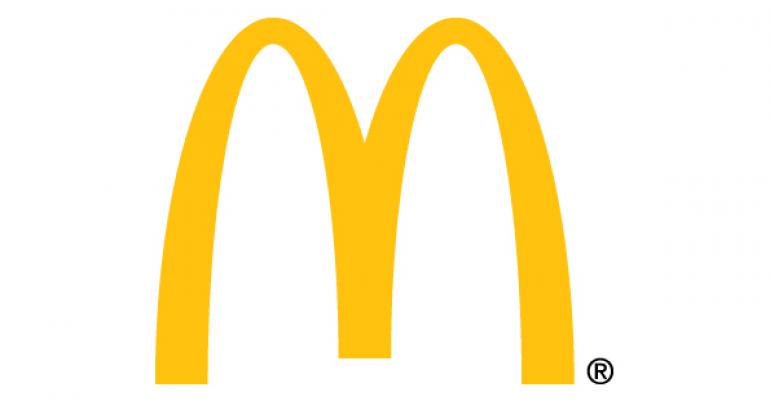A civil rights lawsuit filed against McDonald’s Corp. and a three-unit Virginia franchisee is expected to be the first test of the National Labor Relations Board’s decision to label the franchisor a “joint employer” of its operators’ workers.
The lawsuit — announced in a press release by Fight for $15, a group that has been pushing to raise the minimum wage to $15 an hour — was filed Thursday in a U.S. District Court in Virginia. The lawsuit names McDonald’s Corp. and McDonald’s USA, as well as the franchisee and its owner, Michael Simon.
Ten employees are suing the Virginia franchisee Soweva Co., claiming that the franchisee fired more than a dozen black workers in May after managers allegedly told workers that they “need to get the ghetto out of the store.”
“All of a sudden, they let me go, for no other reason than I ‘didn’t fit the profile’ they wanted at the store,” said plaintiff Willie Betts, who was a cook at a McDonald’s in South Boston, Va., in a statement. “I had no idea what they meant by the right profile until I saw everyone else that they fired as well.”
Betts' statement was also contained in Fight for $15's release. The group has concentrated much of its pressure on quick-service restaurants, particularly McDonald’s.
In a statement to media Thursday, McDonald’s Corp. said it had not seen the lawsuit and could not comment on the allegations, but that it would review the issue carefully.
“McDonald’s has a long-standing history of embracing the diversity of employees, independent franchisees, customers and suppliers, and discrimination is completely inconsistent with our values,” the statement said. “McDonald’s and our independent owner-operators share a commitment to the well-being and fair treatment of all people who work in McDonald’s restaurants.”
According to the complaint, highest ranking supervisors regularly called the McDonald’s in Clarksville, Va., a “ghetto store,” and referred to black workers as “bitch,” “ghetto” and “ratchet.” The complaint also says black workers were disciplined for rule infractions that were forgiven when committed by white workers.
The complaint also alleges that a supervisor routinely touched female workers on their legs and buttocks, discussed sexual activities and offered better working conditions in exchange for sexual favors.
In a statement to local media in Virginia in May, Simon, who is black, said that the terminations were performance-based and unrelated to discrimination, according to local TV station WSET.
The lawsuit is backed by both the local chapter of the NAACP and the Fight for $15.
“The treatment of these McDonald’s workers seems like it’s out of another era, but sadly the racism is a reality they are confronting today,” said the Rev. Kevin Chandler, president of the South Boston, Va., chapter of the NAACP, in a statement.
Traditionally, the liability for discrimination complaints and other employee-related litigation rested solely with the franchisee. But last year, the National Labor Relations Board decided to treat McDonald’s as a “joint employer” of its franchisees’ employees in decisions over wage issues and working conditions. The lawsuit will now put the issue in front of a federal court judge.
Allegations report lack of action
(Continued from page 1)
The NLRB decision is expected to have a significant impact on the franchise business model because franchisees are traditionally considered business owners who hire, fire and pay their workers. For most operators, particularly in the restaurant industry, labor is the biggest cost over which they have control.
Critics of the NLRB decision have long held that treating franchisors as joint employers would damage the franchise model by eliminating that control and putting more of it into the hands of franchisors. Those critics were quick to pounce on the Virginia McDonald’s lawsuit.
The International Franchise Association, a franchising trade group, lays the blame with the Service Employees International Union, which backs the Fight for $15.
“The filing is yet another flailing attempt by the SEIU to build on the flawed reasoning of the NLRB’s general counsel: To exert a non-existent joint employer status on a company and achieve their stated goal of dismantling the franchise relationship to organize workers in an effort to grow their dwindling membership ranks,” the IFA said in a statement. “Decades of established law demonstrate that franchisors do not control the terms and conditions of the employees of their independently owned and operated local franchise businesses.”
But backers of the push for higher wages counter that McDonald’s as a franchisor controls most aspects of their restaurants’ operations, and are therefore responsible for harassment and discrimination claims.
The complaint contends that McDonald’s Corp. has control over “nearly every aspect of its restaurants’ operations” and is therefore responsible for harassment and discrimination faced by the franchisees’ workers. The complaint alleges that several workers contacted McDonald’s to report the discrimination, but the company did nothing.
In addition, the complaint says that a McDonald’s representative who regularly inspects the restaurants learned of their terminations after they occurred in May but did not take action.
Contact Jonathan Maze at [email protected].
Follow him on Twitter: @jonathanmaze





